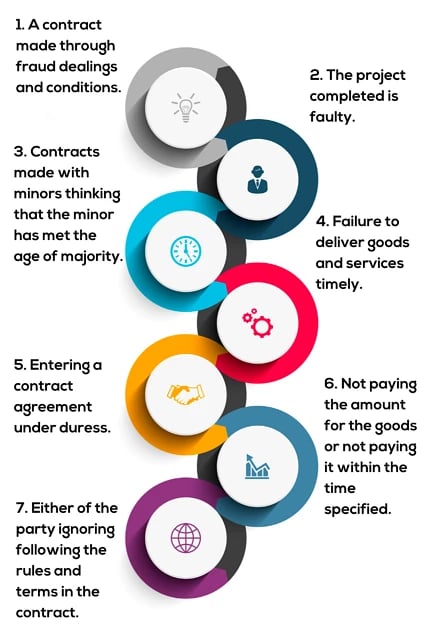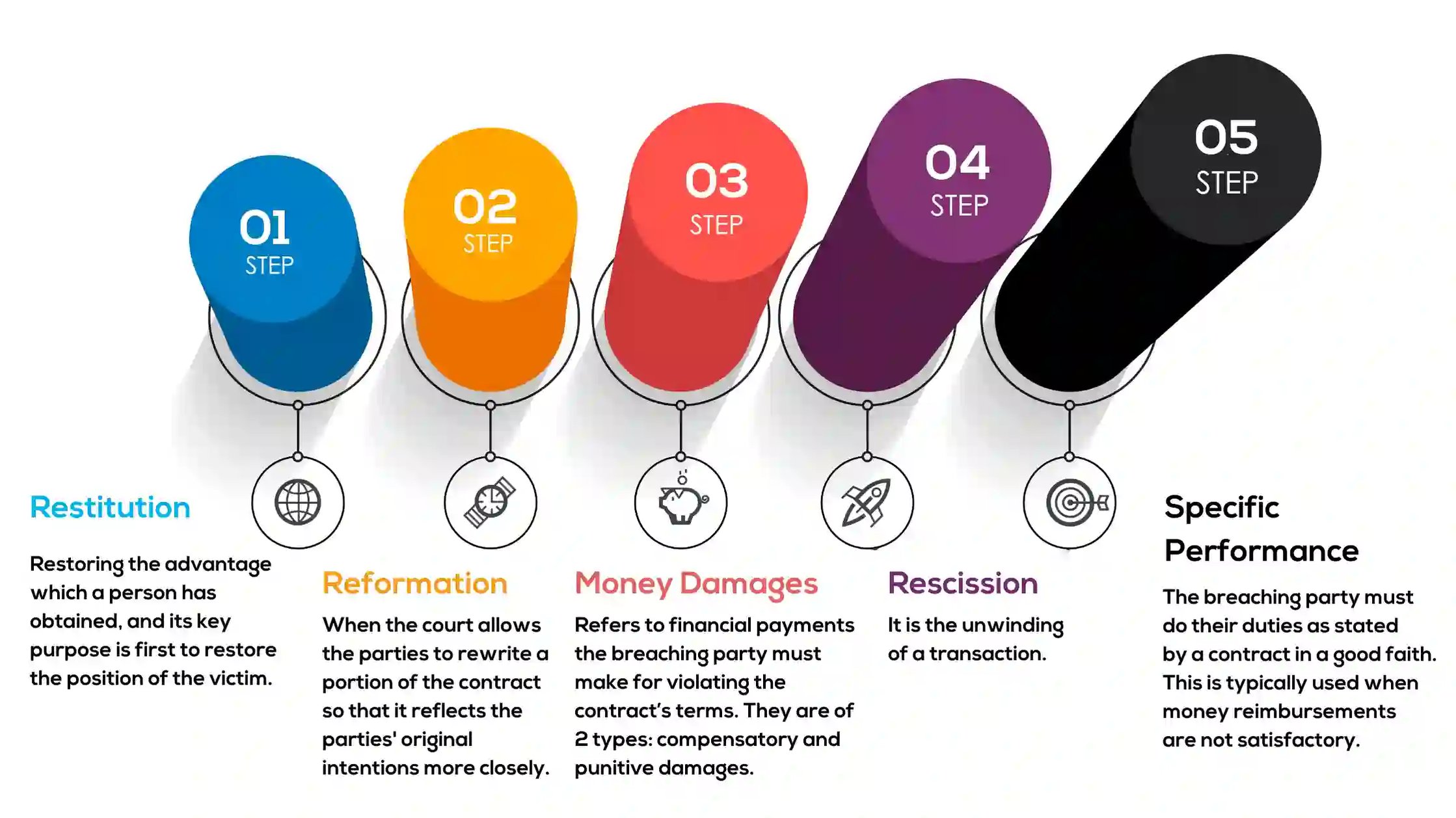
The Cost of Breach of Contract: Why Contract Management Matters
For enterprises, contractual agreements keep growing in volume and complexity. Respecting every clause in contracts is essential to successfully carry out daily operations because they establish the tone for the relationship. Even so, managing a large number of contracts presents additional challenges to keeping track of commitments, due dates, payments, and other factors. Thus, intentionally or unintentionally, organizations end up with a breach of contract.
Apart from reputational damage, violation of business agreements can also result in legal, financial, and operational repercussions. Fortunately, contract management systems are an efficient way for enterprises to keep up with their business demands without incurring the cost of a breach of contract. The CMS (Contract Management Software) platform automates the entire contract lifecycle to eliminate human error and negligence. The various kinds of contract breaches, their effects, and available remedies, we will go over all this in detail in this blog post.
What is a breach of contract?
A breach of contract occurs when two or more parties enter into an agreement to exchange goods or services of value, and at least one of the parties does not comply with the contract terms. Contractual agreements dictate the mutual rights, obligations, and consequences for the parties involved. After all the parties sign a business agreement, it becomes enforceable and legally binding. As a result, any contract violation could subject the stakeholders to severe legal repercussions.
In modern businesses, digital contracts are lengthy, detailed, and complex. They finely state the terms of the business relationships, from duration to payment and schedules. For instance, when one party fails to fulfill their contractual responsibilities or to make payment by the due date, it is considered a breach of contract. Without the organization's knowledge or intention, it can happen anywhere, at any time. To prevent potential contract violations, contract managers must keep track of the contract lifecycle. Several things can lead to a breach of contract:

What are the different types of breach of contract?
As previously mentioned, a breach of contract occurs when one contracted party fails to deliver upon the conditions and stipulations mentioned in the agreement. It is common for the initial contractual document to include specifics about how to handle the violation. For instance, a contract may state additional fees for payment made after the due date.
If the agreement does not cover the consequences of particular breach conditions, parties may settle the dispute amicably, which usually results in a new contract. There are numerous contract formats and outcomes, as well as countless ways to violate them. Here is an overview of 4 common types of breach of contract that you might encounter during contract management.
-
Material Breach
The first kind of breach we will discuss is a material or major breach of the agreement. As the name implies, a major contract violation can severely impact the results of a business agreement. When there is a material breach, one party receives something entirely different than what is outlined in the contract. The breached provision or term must be central to the agreement and render it wholly void.
For instance, if party A agrees to provide a computer to party B and does not deliver the same of superior quality or else delivers it with missing parts, then party B is entitled to take legal action. Failing to fulfill contractual obligations as specified in the contract terms or failing to fulfill their obligations by strict deadlines as listed in the contract are also examples of a material breach of contract. In case of a material breach of contract, the other party should seek damages.
-
Minor Breach
When one party does not receive the promised goods or service by the due date, there has been a minor breach of the contract. However, it is significant to note that in this case, the party in breach only violates a small portion of the business agreement and not the entire contract.
If there is evidence that the breach caused financial harm in these situations, the victim parties may be able to file a lawsuit. Delivering on the original agreement and compensating for any damage incurred by the delay are the remedies for an immaterial or partial breach of contract. For example, if party A agrees to supply 100 office laptops to party B within 15 days (about 2 weeks) and fails to do so.
-
Anticipatory Breach
When one party notifies the other in advance that they will not carry out the terms of the agreement, this is called an anticipatory breach. In such circumstances, the victim party is exempt from further contractual obligations. In an anticipatory breach, the violating party is not blatantly breaking the rules.
The violating party may inform the other party involved of their refusal to uphold their end of the bargain. However, a breach might also occur if the actions of the party in question are indicative that they do not wish to or are unable to deliver upon contract terms. In this situation, either the aggrieved or the breaching party may terminate the contract in advance. Any harm brought on by an anticipatory breach of contract is the responsibility of the violating party.
-
Mutual Breach
A mutual breach of contract occurs when both parties decide to end the agreement for a common benefit and nullify the terms. It can be a financially or socially motivated decision that can benefit the parties involved. For instance, all parties may create a new contract and void the old one if the underlying markets change significantly or the companies find themselves in changed circumstances.
-
Actual Breach
An actual breach of the contract occurs when the violating party either fails to fully comply with its requirements or carries out its obligations improperly. In such cases, the party that suffers from the breach can seek several avenues to rectify the issue. For instance, the party might ask for damages to make up for monetary losses brought on by the contract violation. In addition, the parties will seek compensation for any indirect losses brought on by the breach itself.
How to avoid a breach of contract with contract management software?
A proactive approach to contract management lifecycle can help organizations steer clear of a breach of contract or mitigate its consequences. Because you cannot see or control everything the other party is doing, organizations cannot entirely prevent contract violations, but they can take some steps to strengthen their security. With contract management software, businesses can maintain all key dates and meet objectives for every business agreement in their portfolio.
Centralized contract management
All business agreements in one place mean the entire organization can chip in to keep track of the contract management lifecycle. Moreover, the contract management software comes with digital repositories, pre-approved templates, and clause libraries. Therefore, the legal team can establish standardized language, legal viability, and compliance even for self-served contracts. Competent contractual agreements reduce the possibility of error or risk during the contracting process. And as a result, there is also less chance of an unintentional contract violation.
Obligation management
Failure to comply with contractual obligations is the primary cause of breach of contract. Contract management software allows organizations to stay on top of high-priority terms and conditions by setting up obligation tracking. If either party fails to comply with the terms of the business agreement, the automated notification promptly alerts the contract managers. As a result, even if there are countless agreements, the obligations are upheld.
Automated alerts
Contract management software offers automated alerts for noteworthy events in the contract management lifecycle. Thus, organizations can trigger reminders for contract reviews, renewals, and expiries. By informing the appropriate parties ahead of time about the necessary actions, the legal team can effectively reduce breaches. Moreover, the contract management software also offers real-time document status. Throughout the contract's lifecycle, parties can post comments and communicate with other departments through the centralized platform to relay valuable information.
Custom workflows
Flexible workflow design for contract creation, negotiation, review, execution, and post-contract management supports a standardized, risk-mitigative contracting process. In this manner, organizations define each sequence in the contract lifecycle, which urges compliance and performance from each party. Moreover, the contract management software calls for user-based permission for every phase of the contract management lifecycle. Organizations can easily impose accountability in the case of a contract violation.

Conclusion
Our contract management system, built on existing Microsoft 365 and SharePoint investments, makes for easy adoption and utmost security. Organizations can safely store their entire contract portfolio within their Microsoft environment to avoid data leakage and unauthorized access. Enterprises can spot trends in what promotes overall prosperity by carefully examining the legal agreements through the centralized platform. It cuts down on time wasted while reducing risk exposure and bottlenecks.
As the contractual agreements and lifecycle are always accessible to authorized users, the legal counsel can make key decisions immediately and get contracts moving forward. In the context of a breach of contract, automated contract management software enables enterprises to anticipate a breach of contract and mitigate its consequences.
Book a Live demo
Schedule a live demo of Dock 365's Contract Management Software instantly.
.png?width=196&height=196&name=MicrosoftTeams-image%20(24).png)
Written by Deepti Gopimohan



